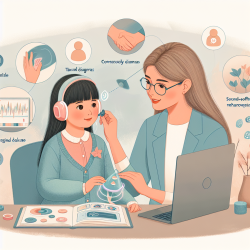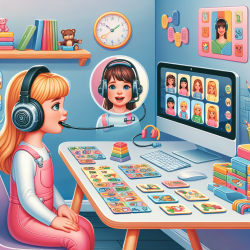Hearing loss is a significant concern for older adults with dementia, often leading to reduced participation in necessary hearing health care. According to Hopper and Hinton (2012), barriers such as overlapping symptoms of dementia and hearing loss, and a lack of awareness about intervention strategies, contribute to this issue. For practitioners working with children, understanding these barriers and facilitators can help improve care strategies.
Key Findings and Implications
The research highlights several critical points that practitioners can integrate into their practice:
- Awareness and Identification: Care partners often do not recognize hearing loss in individuals with dementia due to overlapping symptoms. It's crucial to educate caregivers about the signs and impact of hearing loss.
- Holistic Interventions: Beyond hearing aids, there are various intervention strategies that need to be considered. These include environmental modifications and personalized care plans that address both hearing and cognitive needs.
- Adapted Assessments: Standard hearing assessments may not be suitable for individuals with dementia. Practitioners should adapt their assessment methods to better suit the cognitive status and functional abilities of their clients.
- Communication Strategies: Educating care partners on effective communication strategies, such as clear speech and the use of nonverbal cues, can significantly improve interactions with individuals with dementia and hearing loss.
Practical Steps for Practitioners
To implement these findings in your practice, consider the following steps:
- Conduct comprehensive assessments that take into account both hearing and cognitive impairments.
- Educate care partners and family members about the signs of hearing loss and effective communication strategies.
- Develop personalized intervention plans that include environmental modifications and the use of assistive listening devices.
- Stay informed about the latest research and advancements in hearing health care for individuals with dementia.
By integrating these strategies, practitioners can help improve the quality of life for children with hearing loss and dementia, ensuring they receive the care they need.
To read the original research paper, please follow this link: Hearing Loss among Individuals with Dementia: Barriers and Facilitators to Care










